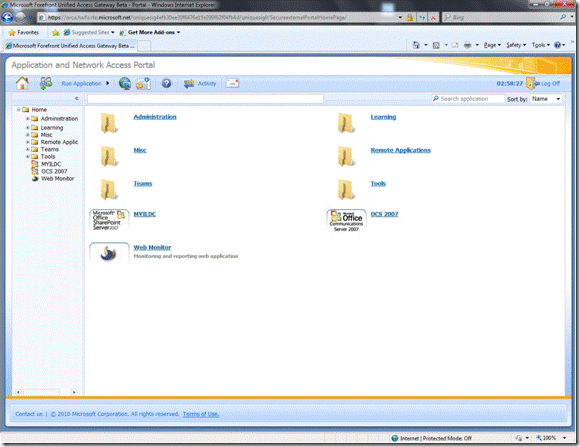What’s in UAG for the end-users
In this blog we usually talk about the technologies, how to get better/easier/simpler connectivity, how to simplify deployments and manage them easily. Still, we hardly ever talk about what matters most, the people we really care about – our end users, remote workers who are using UAG to get access to their corporate resources, from anywhere. At the end of the day, everything we do is done especially for them.
In UAG, we’ve given quite a lot of thought to the end user experience. We wanted to make life really easy and simple for them (at least the remote access bit of their life). The first thing you’ll notice when you access UAG from a client machine is the new portal. We changed and updated the portal look & feel. More importantly, we added new features such as search and sort to make it easier to find the applications.
We wanted to make sure our end-user receives the best service, no matter which device is used to access the portal. When accessing UAG, the user is automatically redirected to the correct portal, based on the device they’re using. We have 4 different portals: 2 for PCs and 2 for mobile devices. The portal is supported on Internet Explorer, Firefox and Safari. For other browsers, we offer a limited version of the portal. Below are screenshots from the Beta portal.
Portal for PC (supported browsers)
Limited Portal for PC (unsupported browsers)
Portal for PDA and Smartphones
Limited Portal for All Mobile Phones
Another great enhancement is that UAG beta supports clients from all locales. That means you can access UAG from any localized machine and still get the same service.
As UAG is progressing toward its general availability, you can expect even more changes and improvements in the client side. Stay tuned…
Comments
Anonymous
July 24, 2009
Hi, PDA & Smartphone means Windows Mobile ? if yes which version ? (5, 6, 6.1) thanksAnonymous
July 26, 2009
Hi, The user is directed to the relevant mobile portal based on the capabilities the mobile browser declares. Windows Mobile is directed to the full mobile portal. All three versions are supported.



